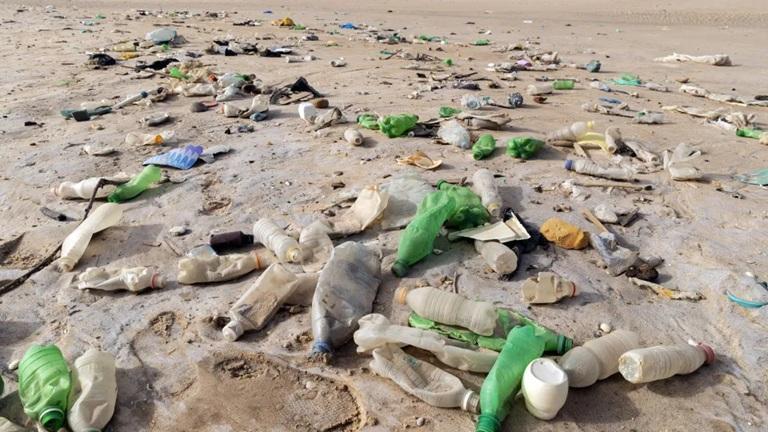Africa-Press – Mozambique. Mozambique dumps at least 17,000 tons of plastic waste into the sea every year, the government revealed yesterday, calling for joint action to stop environmental pollution.
Speaking on World Environment Day, which was celebrated on Thursday, the Secretary of State for Land and Environment of Mozambique, Gustavo Dgedge, said that around 116,000 tons of plastic are sent to the country’s landfills every year, “without proper treatment, putting public health, biodiversity and infrastructure at risk”.
The government official added that, of the total amount deposited in Mozambican landfills, only 1% is recycled, calling for everyone’s involvement in stopping environmental pollution.
“Plastic pollution is currently one of the biggest environmental problems affecting the planet in general, and the oceans and coastal and marine biodiversity in particular, as well as human beings,” he declared, promising action by the Mozambican government to reduce pollution.
Mozambique has proposed regulation to ban plastic, the Secretary of State for Land and Environment said, referring to a legal instrument that aims to improve regulation in this area.
“The accumulation of plastic threatens marine life and interferes with ecosystems, posing a danger to species such as turtles, seabirds and fish [which] often mistake pieces of plastic for food, resulting in intestinal obstructions and even death,” Dgedge warned.
On March 28, the Secretary of State had said that Mozambique produces 4.2 million tons of waste annually, but only 1% is recycled through informal networks, a scenario that the government wants to reverse with a €24 million project, investing in three recycling infrastructures.
“In our country, rapid urbanisation, combined with increased economic activity, has led to a substantial increase in waste volumes,” Dgedge acknowledged at the time, as he presented the second phase of the ValoRe programme, which will run until 2029.
ValoRe sustainable waste management
The ValoRe sustainable waste management programme was launched by the Mozambican government in 2019 to increase the amount of urban waste reused, recycled or treated in the country.
The new phase, which includes funding of €18.4 million from the climate fund Mitigation Action Facility – financed by the United Kingdom, Germany and the European Union – will create a “regulatory and financial environment” for investment in sustainable waste treatment and recycling infrastructures, as well as value chains to promote recovery and reuse, also using public-private partnerships.
“In this first phase, the infrastructures will be built in the municipalities of Nampula, Nacala and Pemba, assuming the role of pioneers who will later pass on their experiences during the expansion phase to other municipalities in the country,” Dgedge explained.
In Pemba, Cabo Delgado province, the construction of the recycling infrastructure will be underwritten with €3.7 million from the Mozambican state budget, and in Nacala and Nampula, in Nampula province, with European funding of €18.4 million. There is also a €2 million component from the Belgian Development Agency (Enabel), which is also supporting this new phase of the programme, in this case to promote waste separation at source in the two cities of Nampula province.
The three recycling infrastructures will directly employ 110 workers, out of 3,915 people who will benefit indirectly.
The project will employ around 1,680 waste pickers, micro-entrepreneurs and members of associations and community organizations involved in recycling, reducing emissions by 89,708 tons of carbon dioxide by 2029.
video
Facebook Post click here
For More News And Analysis About Mozambique Follow Africa-Press






